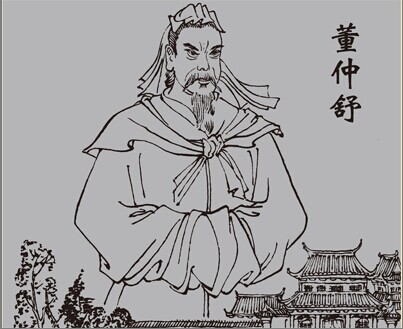(单词翻译:单击)
Rise of Confucianism as Main State Ideology
独尊儒术
Confucianism rose as the main state ideology during the time of Emperor Wudi in the Western Han Dynasty (206B.C.----8A.D.).
儒家思想在西汉(公元前206年至公元8年)武帝时期成为了国家的主流意识。
In the Qin Dynasty (221—206B.C.), Legalism served as the state ideology
秦朝时(公元前221年至公元前206年),法家思想是国家的主流思想。
and at the beginning of the Han Dynasty (206B.C.—220A.D.), Laozi’s theory that was more moderate and humane was put into practice.
在汉朝(公元前206年至公元220年)初期,更为温和和仁慈的道家思想被实施。
However, Laozi’s thoughts did not fit Wudi’s political ambition to consolidate his position and strengthen his power when he became the emperor.
但是,在武帝执政时,道家思想与他渴望巩固个人地位和加强个人统治的政治野心不符。
In 140 B.C, Confucian scholar Dong Zhongshu admonished the ruler to establish Taixue (an academy) to educate the crown prince and to produce elite for governmental offices.
公元前140年,儒学学者董仲书劝武帝建立太学(一种机构)来教导皇家子弟并为政府机构提供精英人才。

He did an excellent job in answering questions raised by Wudi.
他完美地回答了武帝提出的问题。
Wudi was deeply impressed and attached great importance to Confucians and some were even assigned to the high positions of minister.
武帝对此印象深刻,因此重视儒学,有些儒学学者还被任命为高级官员。
In Dong Zhongshu’s words, the ruler should pay supreme tribute to Confucianism while rejecting all other schools of thought.
董仲书说,当权者应该独尊儒术,罢黜百家。
From then on, all government officials were required to learn and study the Confucian Classics and laws were interpreted accordingly.
从那时起,所有的政府官员都被要求学习儒家经典,法律也相应地作出解释和说明。
The orthodox Confucianism helped to establish the ideological foundation in the feudal society of China.
传统儒家思想帮助中国封建社会创建了思想基石。


